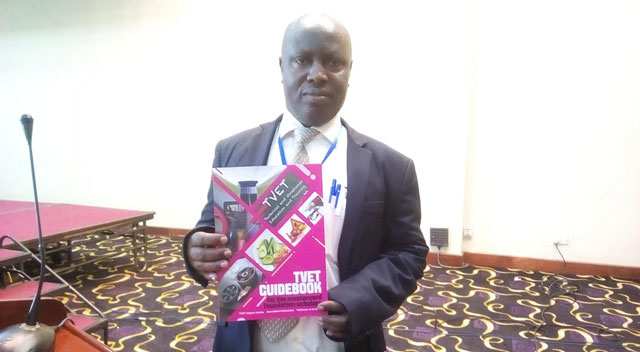
Kampala, Uganda | THE INDEPENDENT | The Directorate of Industrial Training (DIT) has unveiled assessment and training packages for herbalists as part of the efforts to formalize their training and processors of herbal medicines.
The National Drug Authority-NDA and Natural Chemotherapeutics Research Institute (NCRI) developed the training package that falls under Uganda Vocational Qualifications with the help of a panel of experts from different associations of traditional herbalists across the country.
According to the manuals, the herbalists will receive training and undergo an assessment at four levels across the herbal medicine supply chain starting with herbal farming (level 1,) which looks at persons that will be specializing in growing herbs, conservation and harvesting of herbal materials.
Patrick Byakatonda, the Director of DIT notes that the assessment will be purely hands-on focusing on the different competencies that are expected from a practitioner at each stage. He says that anyone with the skill regardless of his academic background is free to join at level one.
Byakatonda adds that after attaining the level one qualification, one can move to level two, which focuses on herbal processing and level three that focuses on compounding herbal products.
“The final level (level four) is where one will be specializing in formulating and prescribing herbal medicine products in addition to researching ailments,” said Byakatonda, adding that this level will be equivalent to a diploma in weight.
Byakatonda adds that at each of the levels the training will have a specific focus capturing the knowledge of the practitioners to reference it with standards to develop uniformity.
Dr. Denis Mwesigwe, the Director in charge of inspecting and enforcement at NDA, says although herbal medicine has been getting significant attention in the global health debates and on the local scene, the practice is largely informal with the actors conducting business at their will.
Dr. Mwesigwe says the assessment and training manuals will help to address some of the challenges including lack of skilled force, unethical advertising, branding, and packaging among others.
Dr. Grace Nambatya, Director of the Natural Chemotherapeutics Research Institute, says the development of training manuals will help improve the practice and formalize the sector increasing the quality of outputs.
“It’s unfortunate but herbal medicine is seen as satanic. This is because of some of the suspicious practices by practitioners. For example, why should someone spit on the herb before giving it to the user? These are some of the things that the training will be handling,” said Dr. Nambatya.
She says that this might be one of the steps towards documentation of the local knowledge that has overtime been taught informally by word of mouth.
Hajji Jamil Mukwaya Lutakome, the President National Herbalists Association, says the herbalists have welcomed the manuals as they are seen as an avenue of streamlining their occupation to weed out masqueraders.
“After training and assessment, we will be able to tell who is capable of doing what. If someone has qualified in farming herbs, they cannot process them. The assessment will be placing everyone at his level of competence and then those who lack competency will ship out,” said Mukwaya.
He also advises that it is high time that the government considered developing a qualification framework for traditional healers and spiritualists.
*******
URN
 The Independent Uganda: You get the Truth we Pay the Price
The Independent Uganda: You get the Truth we Pay the Price




Never leave me behind,am so much interested as a herbalist